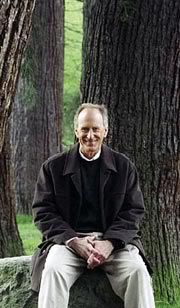Happy Earth Day.
Maybe we should start with a disclosure that I am Gaylord Nelson’s biographer, which may give me a somewhat different perspective on Earth Day, founded by Senator Nelson (pictured), than some others.
That said, do take time to read Meteor Blade’s commentary and Q-A with Denis Hayes, who has been associated with Earth Day since Gaylord Nelson hired him to coordinate the first one in 1970.
Earth Day, it is true, has not solved all of the world’s environmental problems. But it has had, and continues to have, a profound impact on how people think about and relate to the environment.
Gaylord Nelson’s primary goal in launching Earth Day was to get environmental issues a prominent place on this country’s political agenda, and it certainly accomplished that long ago. On the first Earth Day, seven months after Nelson announced plans for what he envisioned as a campus environmental teach-in, 20 million people — 10 per cent of the US population at the time — participated in some way.
Earth Day introduced the Environmental Decade, an unparalleled period of legislative and grassroots activity to protect the nation’s environment. More significant environmental legislation was signed into law during the eleven-year “decade” (1970-1980) than during the 170-year period prior to Earth Day. Congress passed twenty-eight major environmental laws, and hundreds of other public lands bills to protect and conserve natural resources.
Philip Shabecoff, a noted environmental writer, described it this way:
After Earth Day, nothing was the same. Earth Day brought revolutionary change and touched off a great burst of activism that profoundly affected the nation’s laws, its economy, its corporations, its farms, its politics, science, education, religion, and journalism… Most important, the social forces unleashed after Earth Day changed, probably forever, the way Americans think about the environment.

 Every year, I greet Earth Day with mixed feelings because the first one came at a time of tremendous upheaval in another realm.
Every year, I greet Earth Day with mixed feelings because the first one came at a time of tremendous upheaval in another realm.